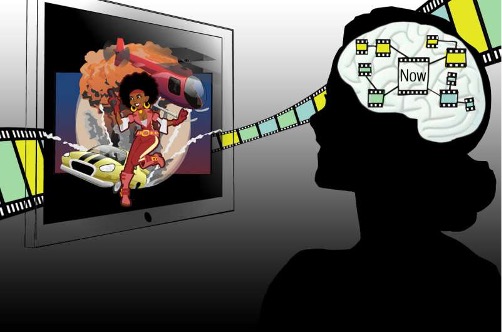Study finds that the human brain reactivates mental representations of past events during new experiences
June 20, 2023
Source: drugdu
 533
533

Neuroscience studies have showed that as mice and other rodents navigate a maze, their brain often "replays" relevant past events. This mental replaying of events, such as the route taken until reaching their current position, could help rodents create a mental map of the spatial environment, and understand their position in it.
Researchers at University College London and Queen Mary University of London recently explored the possibility that the human brain also replays past events to make sense of evolving, non-spatial experiences. Their findings, published in Nature Neuroscience, confirms this hypothesis and suggests that the process through which the human brain reactivates these events might be far more complex than that observed in rodents.
"We know that the brain can 'replay' information that was encountered in the past, although this has mainly been studied in navigation tasks involving rodents," Avital Hahamy, one of the researchers who carried out the study, told Medical Xpress. "We also know that the human brain chunks our ongoing experience into smaller events that we can later recall as a narrative of our daily experience (e.g., your morning events might include taking the tube to work, reaching the office, going into a meeting, etc.).
"We wondered whether the human brain also replays past information to connect these different events into an overarching understanding of our experiences (e.g., allowing us to understand why a meeting started without us by linking this present event to a past event, such as the tube running late)."
Hahamy and her colleagues tried to devise an experiment that might elicit the replay of past events as observed in rodents, but during non-spatial daily experiences. Ultimately, they decided to ask their participants to watch a movie or listen to audio recordings of a narrated story while recording their brain activity using a functional magnetic resonance imaging (fMRI) scanner.
"Movies and stories simulate real world experiences, as they are composed of events that should be linked together to understand the overall narrative," Hahamy explained. "We developed a new fMRI method to look for replay of past information in the transitions between movie/story scenes. We basically asked—would our brains replay past information that is needed for interpreting a scene we had just perceived?"
Interestingly, Hahamy and her colleagues found that as participants were engaged in the narrative of a movie or story, representations of past events, which were needed to make sense of each present scene, were reactivated in their brain. Unlike in rodents, these reactivations appeared while the participants were watching the movie or listening to the story, rather than during periods of rest from the task.
"We found that the same brain regions that replay spatial information in the rodent brain also replay narrative events in the human brain," Hahamy said. "In other words, replay, previously thought to mainly support spatial navigation, could also underlie the human ability to make sense of narratives. Moreover, while research in rodents proposed that replay is used to store past events into memory, mostly when rodents rest or sleep, we suggest it can also be used to make sense of the present, on the fly, while events are unfolding."
Overall, the recent work by this team of researchers suggests that while humans are trying to make sense of their present experiences, their brain may continuously reactivate relevant past events. These observations could soon inspire further studies aimed at better understanding this fascinating "replay" process and its other functional roles.
"The brain mechanism examined in our paper is an example of a process that was widely studied in rodents but could have a richer function in humans," Hahamy added. "It would now be interesting to study whether people suffering from clinical conditions, which are characterized by abnormal integration of information, would have a malfunctioning replay mechanism."
Journal information: Nature Neuroscience
By editorRead more on
- The first subject has been dosed in the Phase I clinical trial of Yuandong Bio’s EP-0210 monoclonal antibody injection. February 10, 2026
- Clinical trial of recombinant herpes zoster ZFA01 adjuvant vaccine (CHO cells) approved February 10, 2026
- Heyu Pharmaceuticals’ FGFR4 inhibitor ipagoglottinib has received Fast Track designation from the FDA for the treatment of advanced HCC patients with FGF19 overexpression who have been treated with ICIs and mTKIs. February 10, 2026
- Sanofi’s “Rilzabrutinib” has been recognized as a Breakthrough Therapy in the United States and an Orphan Drug in Japan, and has applied for marketing approval in China. February 10, 2026
- Domestically developed blockbuster ADC approved for new indication February 10, 2026
your submission has already been received.
OK
Subscribe
Please enter a valid Email address!
Submit
The most relevant industry news & insight will be sent to you every two weeks.



